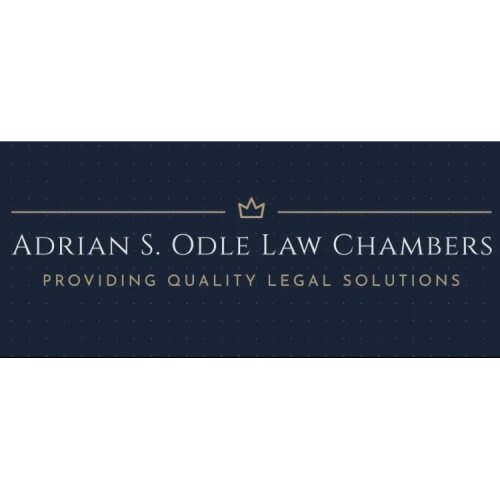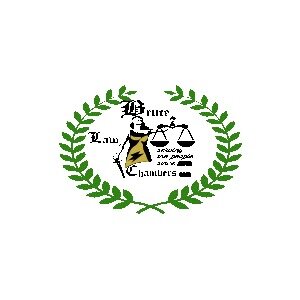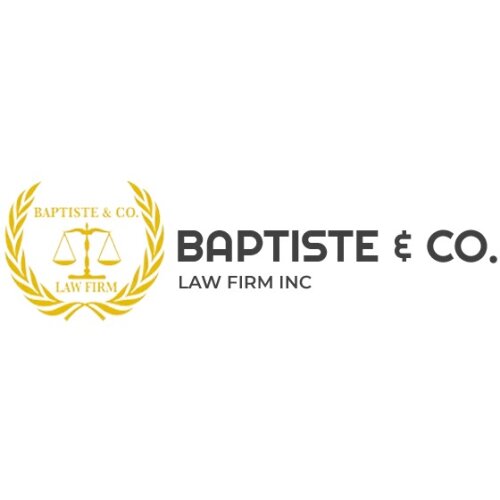Best Sanctions & Export Controls Lawyers in Kingstown
Share your needs with us, get contacted by law firms.
Free. Takes 2 min.
List of the best lawyers in Kingstown, Saint Vincent and the Grenadines
About Sanctions & Export Controls Law in Kingstown, Saint Vincent and the Grenadines
Sanctions and export controls are important areas of law that regulate the movement of goods, services, and financial assets into and out of Saint Vincent and the Grenadines. These legal frameworks help the country comply with international obligations, preserve national security, and prevent illegal activities such as money laundering, terrorism financing, and trafficking. Kingstown, being the capital and primary economic hub, serves as the focal point for enforcing these laws. Both national regulations and international commitments strongly influence the way sanctions and export controls operate in the jurisdiction.
Why You May Need a Lawyer
Many individuals and companies might not always understand when they need legal help regarding sanctions and export controls. Common situations where legal advice is essential include:
- Exporting goods or services that may fall under restricted or controlled categories.
- Doing business with entities or individuals that may be subject to international sanctions.
- Navigating the licensing process for exporting goods like technology, chemicals, or weaponry.
- Ensuring compliance with evolving local and international regulations.
- Receiving notifications from local authorities regarding possible violations.
- Managing potential disputes or investigations related to sanctions breaches.
- Drafting contracts to include proper sanctions and compliance clauses.
A specialized lawyer can assess your risks, help avoid serious penalties, and provide guidance on how to operate lawfully within the broad and often complex field of sanctions and export controls.
Local Laws Overview
Saint Vincent and the Grenadines maintains its own legal framework for sanctions and export controls, often reflecting its obligations to international organizations like the United Nations, CARICOM, and the Commonwealth. Some key aspects include:
- Customs controls that oversee the import and export of goods, with specific attention to controlled items such as arms, technology, and cultural artifacts.
- Legislation that enforces international sanctions, including financial restrictions and travel bans on individuals and entities as designated by the United Nations Security Council or other relevant bodies.
- A licensing regime for businesses and individuals involved in the trade of restricted goods or services, often coordinated through government ministries responsible for trade and foreign affairs.
- Anti-money laundering and counter-terrorism financing measures that intersect with sanctions enforcement, requiring reporting and due diligence by banks and exporters.
- Severe penalties for non-compliance, which may include fines, asset freezes, or criminal charges.
- Ongoing updates as global and regional situations evolve, requiring constant attention from those engaged in international business.
Frequently Asked Questions
What are sanctions and export controls?
Sanctions are legal measures that restrict trade, financial transactions, or travel with specific countries, organizations, or individuals. Export controls govern the movement of particular goods, services, and technology to ensure they are not used for illicit purposes or by sanctioned parties.
Who enforces these laws in Saint Vincent and the Grenadines?
The Customs and Excise Department, the Ministry of Foreign Affairs, and the Financial Intelligence Unit are the main agencies responsible for enforcing sanctions and export control laws locally.
What kinds of goods require export control licenses?
Common examples include arms and ammunition, dual-use technology, hazardous materials, pharmaceuticals, and sensitive electronics. It is important to check with authorities before exporting any regulated items.
Does Saint Vincent and the Grenadines follow international sanctions?
Yes, the country aligns itself with United Nations Security Council sanctions and may also participate in other regional sanctions regimes, especially those agreed to through CARICOM or the Commonwealth.
What happens if I violate sanctions or export control laws?
Penalties range from fines and seizure of goods to asset freezes and criminal prosecution, depending on the severity and nature of the violation.
How do I find out if a business partner is subject to sanctions?
Consult the lists published by the United Nations, the Financial Intelligence Unit, or seek legal advice. Proper due diligence is important before entering into contracts or transactions.
Do I need a lawyer to apply for an export license?
It is not always required, but a lawyer can help ensure the application is complete, accurate, and complies with the latest requirements, reducing the risk of rejection or future legal issues.
Are there exceptions to export controls?
Some exceptions exist for humanitarian goods, personal items, or approved diplomatic consignments, but these are narrowly applied and still need governmental authorization.
Can local businesses be affected by foreign sanctions?
Yes, especially if they operate internationally or have clients and partners in regions covered by international sanctions. Local compliance is crucial to avoid global legal trouble.
How often do sanctions and export laws change?
Changes can happen frequently in response to international events. It is important to monitor updates and seek regular legal reviews to remain compliant.
Additional Resources
If you need further information or assistance on sanctions and export controls, consider contacting the following resources:
- Customs and Excise Department of Saint Vincent and the Grenadines - for guidance on import and export procedures and licensing.
- Ministry of Foreign Affairs, Trade and Commerce - for updates on sanctions and international obligations.
- Financial Intelligence Unit (FIU) - for compliance information related to financial sanctions and reporting obligations.
- Legal practitioners with expertise in commercial and international trade law.
- International organizations, such as the United Nations, for publicly available lists of sanctioned individuals and entities.
Next Steps
If you believe you may need legal advice regarding sanctions and export controls in Kingstown, Saint Vincent and the Grenadines, take these steps:
- Identify your specific concerns or potential compliance issues related to sanctions or export controls.
- Gather all relevant documents, including contracts, export records, and correspondence.
- Contact a lawyer with demonstrated experience in sanctions and export controls, preferably someone familiar with both local and international regulations.
- Schedule a consultation to discuss your situation and the possible legal implications.
- Follow legal advice to ensure compliance, update your internal procedures if necessary, and continue to monitor regulatory developments.
Taking these steps early can help protect your interests, prevent legal complications, and keep your operations in line with the law in Saint Vincent and the Grenadines.
Lawzana helps you find the best lawyers and law firms in Kingstown through a curated and pre-screened list of qualified legal professionals. Our platform offers rankings and detailed profiles of attorneys and law firms, allowing you to compare based on practice areas, including Sanctions & Export Controls, experience, and client feedback.
Each profile includes a description of the firm's areas of practice, client reviews, team members and partners, year of establishment, spoken languages, office locations, contact information, social media presence, and any published articles or resources. Most firms on our platform speak English and are experienced in both local and international legal matters.
Get a quote from top-rated law firms in Kingstown, Saint Vincent and the Grenadines — quickly, securely, and without unnecessary hassle.
Disclaimer:
The information provided on this page is for general informational purposes only and does not constitute legal advice. While we strive to ensure the accuracy and relevance of the content, legal information may change over time, and interpretations of the law can vary. You should always consult with a qualified legal professional for advice specific to your situation.
We disclaim all liability for actions taken or not taken based on the content of this page. If you believe any information is incorrect or outdated, please contact us, and we will review and update it where appropriate.











